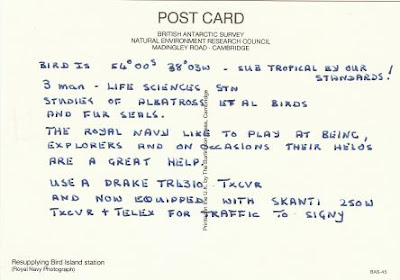
US initial jobless claims plunged below 400k this week, reaching the lowest level since the crunch. If you want regular economic data that gives a clear signal of the direction of the business cycle, you need look no further than this release. Yes, the numbers are revised each week, sometimes by quite a bit. But it's a long-term series that conveys key information about the jobs situation. The renewed dip in this indicator is consistent with GDP growth of over 4% so watch to see how analysts revise their growth numbers up in the new year. Once jobs pick up, consumer confidence follows. They are both lagging cyclical indicators, with jobs leading confidence. The latter has bumped along in a trough for many months but looks set to turn up now. California showed the biggest decline in the week this time. The QSL is from KXBT, Vallejo, CA, near SanFran. I heard it in Sheigra (north-west Scotland) when I was lucky enough to go on a DXpedition with the British DX Club in 1996. It was an early X-bander, operating on 1630 kHz with just 1kW power at the time. Vallejo was an early victim of the credit crunch, filing for bankruptcy in 2008.












.jpg)



.jpg)








.jpg)


.jpg)
.jpg)
.jpg)
.jpg)
.jpg)





